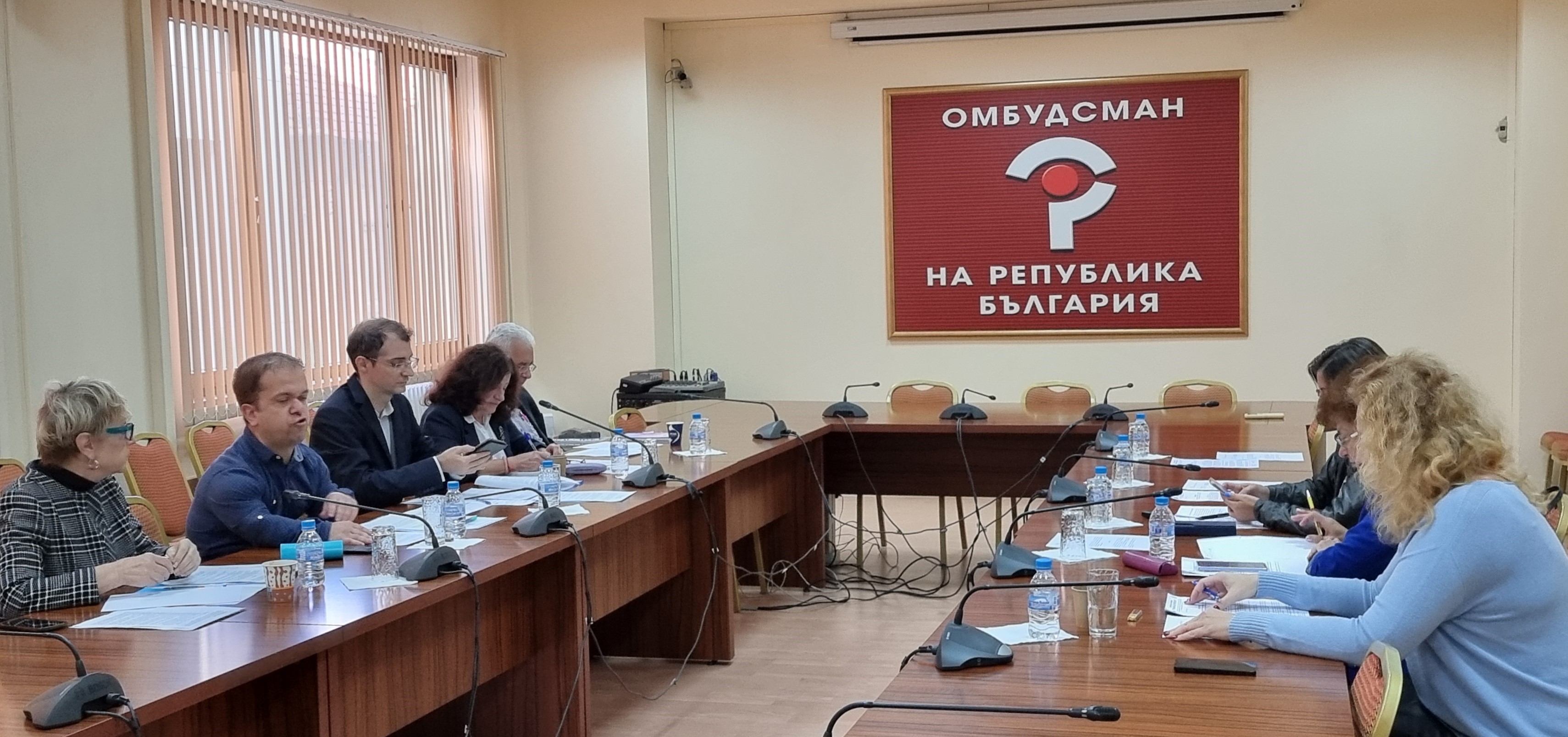News
Disability Act watchdog: Still outstanding problems: medical assessment, aids, parking cards and inaccessible environment

11 October 2024
Problems arising from delays in the appointment of dates for the medical assessment of persons with disabilities by the Territorial Expert Medical Boards (TEMBs)/the National Expert Medical Board (NEMB) continue. This was made clear at a meeting of the Monitoring Committee under the Persons with Disabilities Act that was held at the Ombudsman headquarters.
Citizens continue to face difficulties in the provision of the needed aids, appliances, equipment and medical devices that are outside the scope of the compulsory health insurance and their quality and length of service life.
People approach the Ombudsman Institution to seek assistance to ease the conditions for the physical delivery of the products by the providers and repairers of medical devices, aids and equipment.
Owing to serious delays and unavailability of information about the provision of high-tech devices to people with disabilities under the project “Provision of Aids to Permanently Disabled People” about which the Ombudsman Institution has already informed the Ministry of Labor and Social Policy (MLSP), the Monitoring Committee took a decision to submit an opinion on the solution of the problem.
Also, the attendees of the meeting approved a general letter regarding medical devices and aids to be sent to the heads of the institutions in charge: the Ministry of Health and the National Health Insurance Fund (NHIF).
An important issue discussed by the Monitoring Committee members was the continuing delays in the appointment of dates for the TEMB/NEMB medical assessment.
Citizens complain that the software-supported system of random distribution of files provides links to nonexistent or newly constituted boards, which are planned to go into operation in early 2025.
A significant number of citizens object to the awarded percentage of the type and degree of disability/degree of permanently reduced capacity to work, the most prominent examples being children with Down syndrome.
In addition, people report to the Ombudsman Institution that they are not timely notified by the Regional Health Inspectorates about the need to submit the medical dossier for re-assessment, about the suspension of the pension and about the long time that it takes the National Social Security Institute (NSSI) to consider the application following the issuance of the expert decision by the TEMB/NEMB.
It was decided that the Monitoring Committee should send recommendations to the Ministry of Health and to the National Expert Medical Board to provide information from the medical assessment database after the amendments of June 2024 about: the length of the proceedings involved, the reasons for the still existing delays and the measures taken to cope with the problems in the system.
At the meeting, the Monitoring Committee members also discussed the unavailability of agreed criteria concerning the provision of privileged parking cards to people with disabilities under Art. 99а of the Road Traffic Act.
The analysis of the numerous complaints of citizens to the Ombudsman Institution show that different, and in many cases restrictive criteria have been enforced by the municipal councils in individual municipalities across the country. This is a serious impediment to people with permanent disabilities who are residents of such a municipality and their domicile falls under its jurisdiction to use cards for privileged parking not just in their place of residence but also in the other municipalities countrywide and in the other member states.
A decision was taken to write a general opinion of the Monitoring Committee on the case and to send it to the heads of the institutions in charge: the Ministry of Regional Development and Public Works and the Ministry of Transport and Communications. The Committee will insist on action to address the problems as the matter for resolution is assigned to the Council of Ministers or the ministers within whose competence the matter lies.
Another decision made by the Monitoring Committee members was to support the position of the Ombudsman Institution to the Sofia Municipality with a supplement and a copy to the Sofia Metropolitan Directorate of Interior regarding the security of the subways and the easy access to the area of the Central Railway Station and to send a general opinion of the Monitoring Committee to the Minister of Transport and Communications vis-à-vis the accessibility of the platforms and the existence of an approved modus operandi when a person with a disability wishes to travel by train of the Bulgarian State Railways (BDZ).


